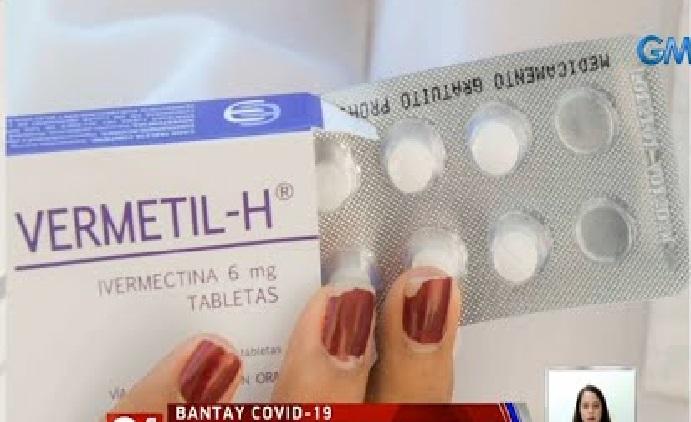Pharma association slams illegal distribution, compounding of ivermectin

The Philippine Pharmacists Association, Inc. (PPhA) on Friday opposed the “irrational” dispensing and illegal compounding of anti-parasitic drug ivermectin.
“In the light of the recent mass distribution of Ivermectin, the Philippine Pharmacists Association, Inc. strongly opposes the irrational dispensing of an unregistered drug and illegal compounding thereof,” the PPhA said on Facebook.
The association said they are not against the use of Ivermectin but are concerned about patients’ safety and compliance with the law.
“We call on the FDA [Food and Drug Administration], the [Department of Health], and other concerned agencies to act on this matter swiftly and decisively,” PPhA said.
“The law is enacted for the best interest of the patients. Disregard of the law should not be condoned, as such careless act may put the health of the public to unnecessary risks,” it added.
In the same statement, the PPhA made points on the process of compounding medicines, the importance of valid prescriptions, and the legal distribution of pharmaceutical products whether compounded or not.
It explained that not all medicines are for general use of the public and these prescription medicines shall only be compounded and/or dispensed by a pharmacist in a pharmaceutical establishment registered with the FDA.
Close monitoring of the patients must also be strictly ensured and documented by the prescribing physician and the dispensing pharmacist.
It cited Article 1, Section 5g of Republic Act 10918 or the Philippine Pharmacy Act, which stated that compounding should be performed as a result of a prescription or drug order by a physician, dentist, or veterinarian; or for the purpose of, or in relation to, research, teaching, or chemical analysis.
It also underscored that compounding in large quantities for mass distribution is illegal as it already constitutes manufacturing of a pharmaceutical product.
Before manufacturing these products, a license to operate should first be obtained from the FDA, the association said.
Moreover, the PPhA reiterated the need for a valid prescription before the compounding or dispensing of a medicine from an FDA-registered pharmaceutical establishment.
The PPhA reminded the public that a valid compound prescription has specific instructions on ingredients and procedure, written for a specific patient, and must be made before a pharmacist can compound.
The patient must also be well-informed of the benefits and risks associated with the medicine being prescribed.
A valid prescription should specify the date of issuance, patient’s information such as complete name, address, and age, physician’s information such as name, address, contact number, signature, and Professional Regulation Commission’s ID number, drug name, drug strength, dosage form, quantity prescribed, and direction for use.
“An invalid prescription must not be served. A waiver signed by a patient cannot exonerate the prescriber or the pharmacist from the accountability in case of drug reaction,” the association said.
The PPhA also reminded all stakeholders that the dispensing of medicines, whether compounded, FDA-registered, or under compassionate special permit (CSP) must be done under the direct and immediate supervision of a pharmacist.
It cited Article IV, Section 30 of RA 10918 which stated that no pharmaceutical product, of whatever nature and kind, shall be compounded, dispensed, sold or resold, or otherwise be made available to the consuming public, except through a retail drug outlet duly licensed by the FDA.
Dispensing pharmaceutical products in a medical mission without the supervision of a duly registered and licensed pharmacist is likewise prohibited and punishable as stipulated in Article VII, Section 46 of the same law.
The PPhA also expressed support to the call of other health care professionals, medical societies, the DOH, and the Health Professionals Alliance Against COVID-19 (HPAAC) for the rational use of medications.
On Friday, Health Secretary Francisco Duque III said the FDA must probe reports of “token” prescription that were issued during the ivermectin distribution project of Representatives Rodante Marcoleta and Mike Defensor.
For its part, the FDA said it was looking into the matter.
To date, the agency has allowed five hospitals to use the drug for COVID-19 patients under compassionate special permits.
Despite the approval, the FDA said its distribution is still prohibited, saying only the hospital that has the permit for ivermectin’s compassionate use for humans will be allowed to import the drug through a licensed importer.
A compassionate use permit only allows legal administration of the drug in the country but is not an endorsement of its safety and efficacy from the FDA.
A certificate of product registration, on the other hand, will allow manufacturers to sell the drug commercially and is an FDA guarantee that the drug is safe and effective.
Earlier, the Department of Justice said that the “soundness” of the legal basis of FDA’s exemptions merit “further study.”
The World Health Organization, US FDA, European Medicines Agency, and ivermectin manufacturer Merck all stressed that they do not support the use of ivermectin as a COVID-19 treatment based on current evidence. -MDM, GMA News



